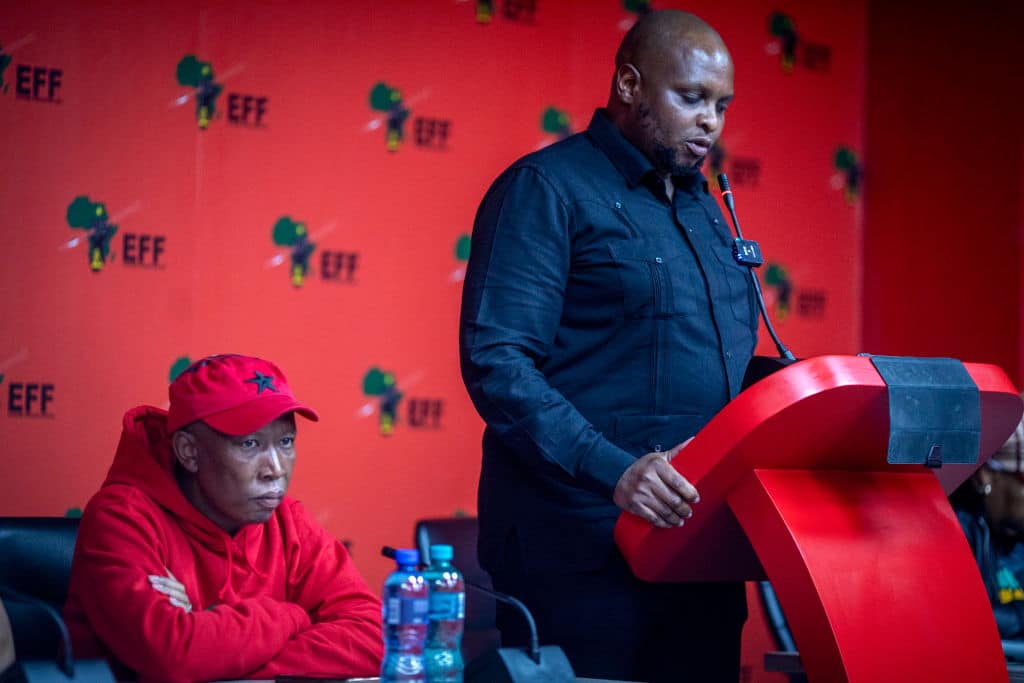Floyd Shivambu, South Africa’s Economic Freedom Fighters (EFF) Deputy President, today resigned from the party to join the uMkhonto we Sizwe (MK) party. This move represents the largest shakeup in EFF leadership since its formation in 2014 and reflects the shifting nature of opposition parties in light of South Africa’s recent Government of National Unity (GNU) formation following this year’s elections.
EFF President Julius Malema acknowledged the resignation in an urgent press briefing held in Johannesburg and attended by FORBES AFRICA, stating, “When he sent me a letter yesterday, I felt the pain… resigning from the EFF is like resigning from himself.”
Shivambu has long been a staunch supporter of Malema, co-founding the EFF alongside him. His exit to the MK party may herald a larger exodus of his loyalists, with at least one other EFF Member of Parliament, Mzwanele Manyi, also tendering his resignation in favor of joining MK.
Rumors of Shivambu’s potential resignation began swirling on social media late last night, quickly becoming the top trend on X, formerly Twitter, in South Africa. Speculation suggested that the rift was due to Shivambu potentially challenging Malema’s leadership at the EFF’s next conference.
Shivambu’s departure to the uMkhonto we Sizwe party, formed late last year after former President Jacob Zuma broke away from the ruling African National Congress (ANC), is particularly notable. Since MK’s formation and the lead-up to the June elections, several ANC members followed Zuma, leading to a groundswell of populist support. The newly-formed MK party surprisingly captured 14.58% of the national vote.
Loading...
In response to the surge in support for relatively nascent opposition parties and the significant losses suffered by the ruling ANC, the post-election landscape saw the ANC, opposition Democratic Alliance (DA), and several other parties form GNU.
“My non-renewal of EFF membership is not a vote of no confidence,” said Shivambu during today’s press conference, notably absent his red overalls and beret, the EFF’s uniform. “It is a revolutionary act that will allow progressive forces to unite and work towards their agenda,” he added, seemingly nodding to the newfound circumstances the EFF and MK parties find themselves in since the GNU’s formation. Despite Shivambu’s conciliatory words, a visibly-agitated Malema looked on during the reading of the resignation letter.
Shivambu’s move comes just a week after 18 MK MPs were recalled from Parliament by the organization, many of whom had resigned from previous posts or employment to embrace their new roles — expulsions that have marked the party since former President Zuma assumed leadership of MK in May.
This move represents another unexpected turn in South Africa’s political landscape, with Malema acknowledging the potential impact on the party. “There will be many others who are going to leave the EFF because they’ve got their loyalty and support for the deputy president,” Malema remarked.
Shivambu declined to elaborate on his reasons for leaving, stating, “I don’t entertain rumors and speculations.”
The departure of a key figure like Shivambu could have profound implications for the future of South Africa’s opposition politics. With the MK party gaining traction and the EFF facing internal challenges, the balance of power among opposition parties is likely to shift, potentially altering the dynamics within the GNU. As these developments unfold, the future of South Africa’s political landscape will hinge on how these parties navigate their evolving roles, their ability to unite their bases, and the impact this will have on governance and stability in the country. The emergence of new
political alliances and realignments could shape the course of South Africa’s democracy in the years to come.
Loading...
